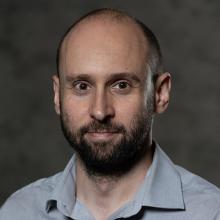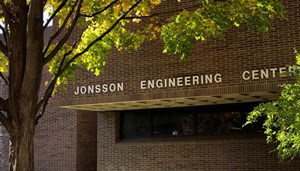
“Astrobiology at Rensselaer – Four Decades Searching for Life’s Origins”
A discussion about Rensselaer’s distinguished history in the field of astrobiology and the outlook for our future.

“Future space instruments to search for life outside the solar system”
This talk will focus on two concepts for characterizing exoplanets to detect biosignatures: a NASA-led space telescope and a Europe-led space interferometer, both involving several optomechanical technologies never before flown in space.
“Mapping Gaseous Galaxy Halos with Space Telescopes”
In this talk, Yong Zheng will introduce her research on the evolution of nearby galaxies. The presentation will also describe how galaxies form and evolve by interacting with their ambient gaseous halos and how astronomers use telescopes to observe and characterize those gaseous halos.
Presentation: “Spacecraft Trajectory Design Leveraging Natural Pathways in Astrodynamical Systems”
Efficient spacecraft trajectory design is paramount for successful space missions, where fuel consumption plays a critical role in mission longevity and feasibility. While impulsive maneuvers offer simplicity in design, their inefficiency compared to low-thrust alternatives is a limiting factor. This talk explores leveraging invariant dynamical structures in the circular restricted three-body problem to optimize low-thrust trajectories.
“The Milky Way galaxy in Motion”
Heidi Newberg will briefly describe the components of the Milky Way galaxy and the discovery of dark matter. Her presentation will explain how smaller galaxies are falling into and being incorporated into the Milky Way, and how that process makes waves in the disk. She will further discuss how we are trying to use all of this to understand dark matter.
“Ascending the Kármán Line: Design of a two-stage sounding rocket to space”
Rensselaer Rocket Society team members will discuss their efforts to design, build, test, and fly a two-stage rocket to exceed the Kármán line, the defined boundary for space. This has not yet been achieved by students at any university.
